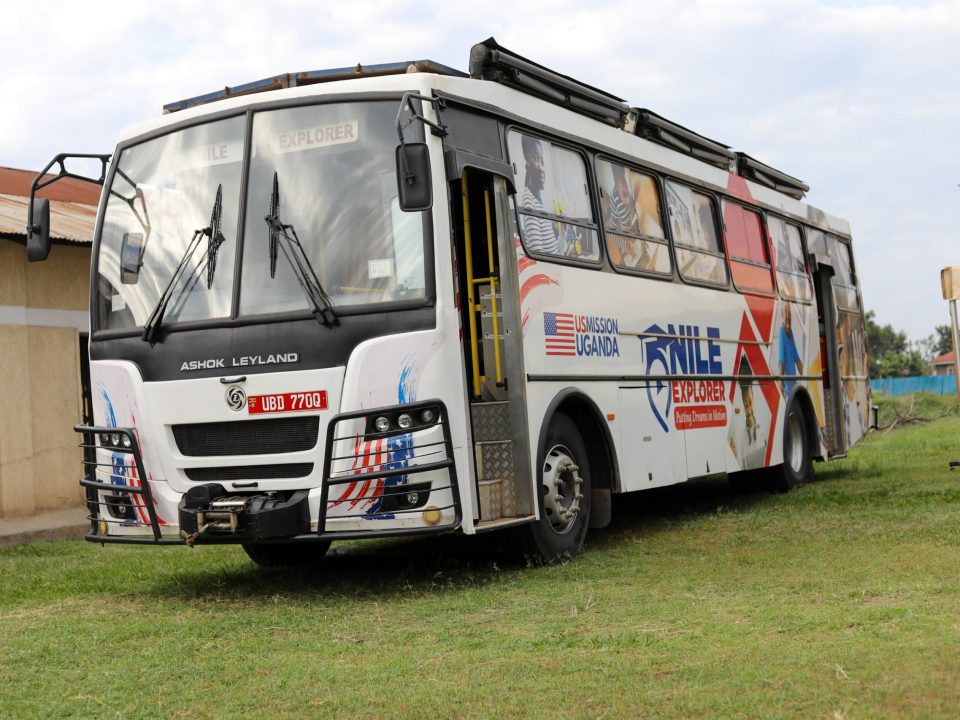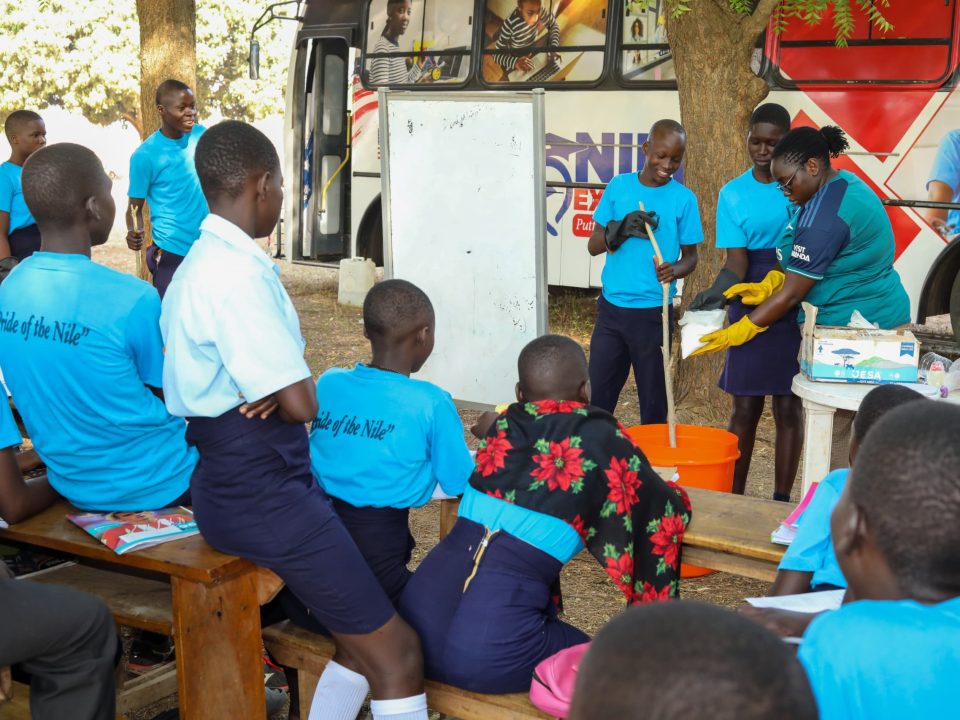
Opening Up the World of STEM to Secondary School Students in Uganda: Inspiring Curiosity and Growth
January 31, 2023
The Nile Explorer Bus’ Joins World to Celebrate International Women & Girls In Science Day
February 13, 2023The importance of providing a library of books on Science, Technology, Engineering, and Mathematics (STEM) to students in underserved schools cannot be overstated. In today’s world, STEM education has become increasingly important, with the rise of technology and the shift towards an economy that relies on these disciplines. Unfortunately, due to a lack of resources and funding, many students in underserved schools are not receiving the same level of STEM education as those in more well-resourced schools. This is where a library of STEM books can make a huge difference.
The Nile Explorer Bus recently made its journey to Western Uganda, and this time round, set the intention to carry on board, provide, and encourage the reading of STEM books. Having access to this library of STEM books provided the students in the underserved schools visited by the bus in this region, with the opportunity to explore their own interests and to gain knowledge in areas that is rarely, and sometimes not, covered in their regular curriculum. Additionally, the presence of this variety of STEM books encouraged the students to develop critical thinking skills, as they explored concepts from different perspectives and further applied them to real-world scenarios. Through this, the students that went through the bus’ training and curriculum gained a broader understanding of STEM and its implications for society.
Furthermore, the library of STEM books also proved beneficial to the trainers on the bus because they too, used the books to supplement their teaching and to create meaningful learning experiences for the students.
In conclusion, providing a library of STEM books to students in underserved schools can have a multitude of benefits. As openly demonstrated by the Nile Explorer Bus, not only can it give students access to a variety of resources that can help them to develop critical thinking skills, but it can also provide trainers everywhere with materials to supplement their training and provide meaningful learning experiences for students. Therefore, it is essential to ensure that students in underserved schools have access to a library of STEM books.




